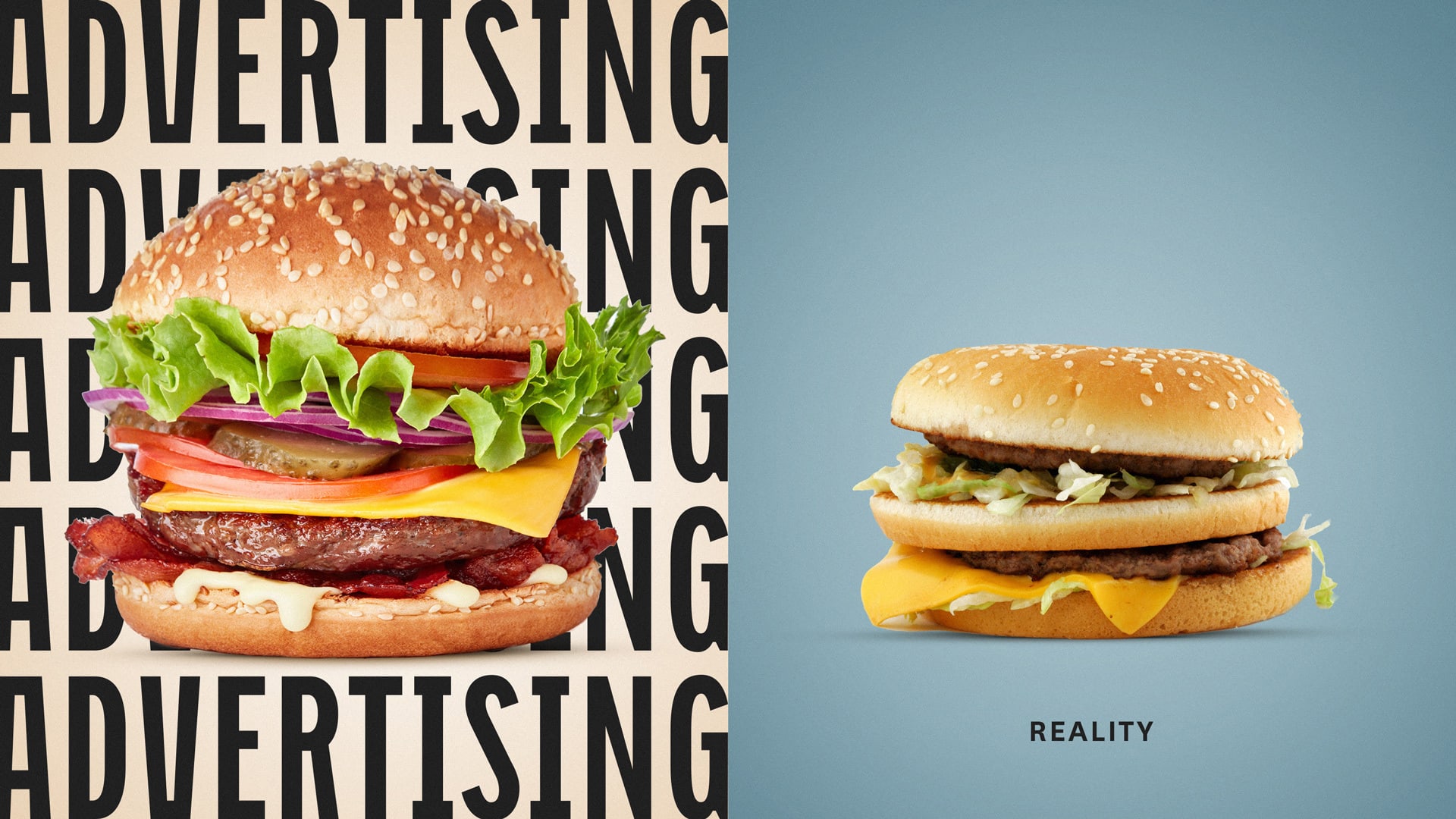I've found myself several times lately in situations where I'd be explaining to people what I do (and why) as a psychologist in the world of advertising. It had come to the point where I’d start answering questions regarding what I do for a living by clarifying, in advance, my opinion on manipulation and ethics in advertising, even without being asked to. I’m grateful to everyone who did ask for my opinion, because it led me to engage in a deeper study of the topic and reach the conclusion that it is possible to work in this industry ethically and without manipulation, no matter how demanding it may sometimes seem.
Unethical is not the same as illegal
In order to talk about ethics, it is essential to make a distinction between law (which is usually more or less clearly defined, and virtually always black and white) and ethics (distinguishing between what is good and what is bad, guided by moral principles, often existing in a gray zone and subject to discussion and varying interpretations). While legislative regulation is enacted by the state and applies to all citizens and companies doing business in said state, ethical principles are defined by codes of ethics within a particular field or industry.
Ethics in the context of advertising
Even though it may sometimes seem that behaving ethically (and in accordance with the law) is easy and a matter of simple logic, examples of large and well-known brands that have been fined for their adverts over the past few years (such as Uber, Nivea, Kellogg and L'Oréal) demonstrate that the situation is not that simple after all.
Codes of ethics cover various domains of advertising and are based on basic principles and practices (such as politeness, integrity, honesty…)
I especially like the elaboration of these principles, which states that they are based on the premise that all forms of communication, including advertising, have to be oriented toward what is best for the consumer, which in turn is what is best for business.
Certain codes of ethics for advertising explicitly point out that advertising ought to contribute to the greater good that transcends immediate consumer pleasure, do no harm and promote trust in the world of marketing. At Señor, we believe there is no sharing without caring. Advertising mustn’t be in the service of only one side of the story but should also be to the benefit of the message recipient, who will in turn recognize it as relevant and reciprocate with the desired. Symbiosis with mutual gain, and not parasitical exploitation. Other approaches are obsolete and unsustainable in the long term.
On the other hand, one encounters on a daily basis adverts that, using the knowledge of consumer psychology about the strategies of attitude change, the formation of needs and the influence of social norms on behavior, aim to manipulate behavior in order to reap profits. Additionally, there are scores of ad campaigns that attempt to attract the attention of consumers and the public in provocative, vulgar or sexist ways. In this context, it is important to distinguish between manipulation and persuasion – while manipulation refers to behavior through which we control someone, put forward dishonest offers and ultimately lose the other party’s trust, persuasion is different in both intent and outcome, and leads to establishing a higher level of trust.
What kind of influence do we have over people and their mental health?
So, the message seems clear – our task is to give people information that is in their best interest, and this means society as a whole. A simple task at first glance, but if we know that watching Popeye has led to children consuming more spinach, we also know how much of an impact communication can have on children (and adults as well). Will we be offering them fruit and vegetables, soda drinks high in sugar, water or something entirely different?

There is in fact no right answer – ethics allows us to think and raise our awareness about the fact that what we do has consequences for the people we communicate to, which is often not even considered.
To be precise, we can find information about the positive impacts of advertising way more easily than information about the negative impacts, which we tend to ignore or downplay. Advertising can have a negative impact on mental health on more than one level, and at the same time adverts, although harmful, could seemingly be very ethically designed. For this reason, it is the responsibility of agencies to look at the influence of advertising even beyond law and ethics, and change practices accordingly.
1) Advertising can alter body image
When television was introduced in Fiji in 1995, the first research connecting the exposure to media content and the risk of developing eating disorders was conducted. Despite all its shortcomings, this was one of the first scientific studies dealing with the impact media has on body image. We know today that exposure to adverts promoting unhealthy beauty standards produces a bigger dissatisfaction with the body, increasing the risk of developing eating disorders, depression and self-harm. And even though this is common knowledge (or am I just being naïve?), we still keep finding a large number of campaigns actively promoting unhealthy beauty criteria.
2) Inappropriate advertising leads to the sexualization of children and young people
The American Psychological Association published its first report on the sexualization of girls in the media back in 2007, demonstrating how women are objectified more often than men (meaning they or their body parts are used as decorations, rather than real, whole people) and are presented in a sexual manner (for example, dressed in revealing clothes or staged in poses that implicate sexual desire). The report lists a number of examples from advertising (including the old, later banned, Sketchers campaign ‘Naughty and nice’) and TV programs that feed such content to children, pointing out the main adverse effects of this kind of content – developing eating disorders, low self-esteem, symptoms of depression.
3) Creating and maintaining stereotypes limits the capacity for learning
Considering that children before the age of 12 cannot comprehend and recognize the purpose of advertising, advertising to children is carefully regulated. Excessive exposure to TV advertising creates a consumerist mindset, develops materialistic values and affects self-esteem negatively. The display of different stereotypes, particularly gender stereotypes, is seemingly less detrimental. Girls and women are often portrayed in the context of beauty, affection and domesticity, while boys and men are portrayed in the context of physical and work activities and positions of power. These kinds of images limit the ability of children to develop skills and learn new things, which is very clearly demonstrated in this experiment by the BBC.
Now that we know what we know: Back to basics
No matter how successful ethically questionable campaigns may seem, studies show that over a third of Americans choose not to buy a product specifically because they consider the brand’s advertising to be inappropriate, and false advertising can create unrealistically high consumer expectations and lead to their dissatisfaction. Research also shows that it takes just one advertiser with an unfair or insidious campaign to reduce the credibility of the entire advertising industry and develop even bigger mistrust. Ethical marketing, on the other hand, has a positive influence on consumer satisfaction, brand value, industry reputation and advertising effectiveness, thus enabling us to create trust that, in the end, leads to greater brand loyalty.
If you’d like to know more: The ICC offers a free course on Ethical Marketing and Advertising, I recommend you have a look.
